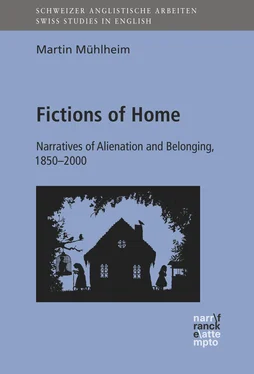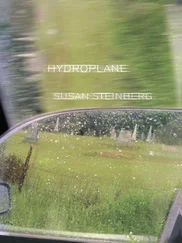Crucially, these three truth claimstruth claims differ with regard to the grounds on which they can be contested. In the case of intra-fictional truth claims (e.g. ‘In ShakespeareShakespeare, William’s play Hamlet , the protragonist marries Ophelia’), the information provided in the fictional text itself forms the only basis on which we may accept or reject such a claim (‘No, the text makes it very clear that Hamlet and Ophelia never get married’). In the case of generalizing truth claims, by contrast (e.g. ‘Jane AustenAusten, Jane is right when she writes: “It is a truth universally acknowledged, that a single man in possession of a good fortune, must be in want of a wife”’; Pride and Prejudice 5), we must refer to evidence pertaining to the real world when formulating a counter-argument (‘What about men who are attracted to other men?’).12 In the case of fictional truth claims of one-to-one correspondence, finally (e.g. ‘In 1991, ZurichZurich was the capital of SwitzerlandSwitzerland’), readers are free to take note of divergences between the fictional world and real life (‘In fact it was Berne’), but as it is essential to the game of fiction that constraints on truth claims of one-to-one correspondence be playfully suspended, such divergences do not constitutes lies, or even inaccuracies. Instead, counterfactuals in fiction prompt a series of interpretive questions: What is the function of these divergences within the fictional text? Do they contribute to or detract from the text’s aestheticaesthetic and rhetorical effectiveness? And is it morally justifiably to ‘play around’ with the particular facts in question? Even in the case of fiction, in short, truth claims of one-to-one correspondence remain open to critical debate, but they cannot be challenged directly on the basis of their divergence from fact – and this is what distinguishes the fictional compromisecompromise between the real and the imaginary from the structurally analogous compromise of home as a spatiotemporal imaginary. In the case of truth claims about home, constraints on one-to-one correspondence remain in full force, and it is therefore legitimate to challenge any divergences of this kind directly (‘No, DietikonDietikon is not your home because you have no relation to that place and in fact don’t even know where it is’).
If these different rules for how to challenge truth claimstruth claims provide us with one criterion theoretically to distinguish the concept of home from that of fiction, then the second criterion pertains to these concepts’ respective degrees of closureclosure. In the case of fiction, the compromisecompromise between the real and the imaginary is necessarily expressed in a definite shape (i.e. a finished product, such as a written text or a film). By contrast, home as a spatiotemporal imaginary remains, for the most part, implicit, or is expressed piecemeal, either by individuals or by collectives, in evolving communicative situations. Home as a mental structure is thus generally fuzzier, and likely to be less internally consistent, than fiction – which means, conversely, that the pressure to find satisfactory compromises is much higher in the case of fiction, as fiction must give a much more clear-cut form to the compromise between the real and the imaginary than is the case for constructions of home. This, in turn, allows us to speculate that the need for fictions becomes particularly acute precisely in those moments when socio-historical pressures bring to the fore certain contradictionscontradiction in the (usually implicit) spatiotemporal imaginary of home. Fiction’s formalform and content compromise, though perhaps unable truly to resolve such crises, at least serves temporarily to dilute and reduce the contradictory stresses that threaten our sense of home and belonging – which is merely to reiterate, in slightly different form, that fiction itself is a home-makinghome-making practice.
The Metaphysics of Home: Religion, the Canon, and Existential Trauma
As we have seen, home is a spatiotemporal imaginary, and as such it is concerned with our place in the world, both in the sense of our geographical location and of our position within the larger scheme of things. Accordingly, an inquiry into the nature of belonging may quickly lead us beyond questions of daily existence, toward the realm of metaphysicalmetaphysical speculation. More specifically, inquiries into the nature of home are likely to spark questions of a religious nature because religions tend to hold forth the promise of a final, transcendental home. In the Judeo-Christian traditiontradition, for instance, humanity appears as tragically fallen: expulsed from EdenEden, Garden of, and exiledexile in the desert of earthly existence (an idea powerfully expressed, for instance, in John MiltonMilton, John’s Paradise Lost ). As John Durham PetersPeters, John Durham observes, there is thus at least one similarity between Judeo-Christian and poststructuralist thought, for in both these traditions human identity is seen as inherently incomplete and discontinuous with itself (“Exile, Nomadism, and Diasporadiaspora” 22).13 According to PetersPeters, John Durham, Christian discoursediscourse in particular has come to be suffused with nomadic imagery, with St. Paul’s ideas being particularly influential: “The human bodybody for him is a temporary, mobile dwellingdwelling in which mortals sojourn on earth” (27–28). In this view, humans are wanderers on the face of the earth, and only in death, when we have finally left our nomadic bodies behind, is it possible for us to recover our transcendental home in God, with whom we will forever rest in peace.
Steven SpielbergSpielberg, Steven’s E.T. explicitly draws on this religious narrative of alienationalienation and belonging in order to enhance the significance of little Elliott’s quest. As already noted briefly, Elliott’s own father is absent from the home; he has left the mother and moved to MexicoMexico with his new partner. Elliott longs for the absent father, and E. T. assumes the role of a MessiahMessiah figure who will guide the boy towards a new sense of belonging. Indeed, as Thomas SebeokSebeok, Thomas has noted, E.T. ’s emotional power depends to a large extent on its “subliminalsubliminal religious infrastructure” (662). SpielbergSpielberg, Steven’s film tells the story of an otherworldly being who, we will find, has the power to heal little Elliott’s wound when the boy cuts himself on a sawblade; a being who dies, is resurrected, and who, in the final scene, ascends once again to his heavenly home (AlexanderAlexander, William 25; Tomasulo 275). The film’s religious subtext is also apparent visually, as when E. T.’s glowing heart alludes to the iconographic traditiontradition of the Sacred Heart of JesusJesus Christ (FIGURE 2).14 In fact, even the film’s advertising campaign has incorporated this religious dimension, with official posters pointing to MichelangeloMichelangelo’s depiction of the creation of man in the frescoes of the Sistine Chapel (FIGURE 3). In E.T. – as in many texts about home – a protagonist’s attempt to find a place in the world thus assumes a profoundly metaphysicalmetaphysical dimension, and it is arguably for this very reason that the eponymous heroine of D.H. Lawrence’sLawrence, D.H. Lady Chatterley’s Lover (1928) includes home in her list of the “great words” (the others being lovelove , joy , happinesshappiness , mother , father , and husband ; 62; ch. 6).15 At the same time, to say that Elliott’s quest gains in metaphysical depthdepth, as well as emotional resonance, through the film’s use of religious imagery is not to argue that E.T. is in fact a religious film; the point is, rather, that intertextuaintertextualityl references affect our reactions to the film. More generally, references to religious and other texts that are widely familiarfamiliarity can enhance the spectator’s sense of belonging, as they place the individual work of art within a larger system of meaning.
Читать дальше












